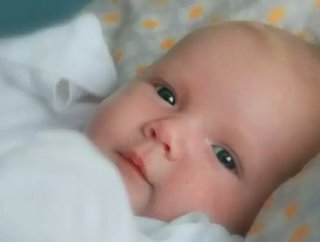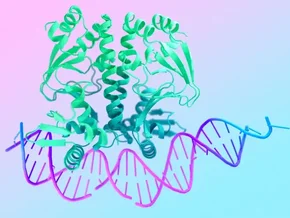Brain scans can detect autism in babies at six months

Autism cannot be officially diagnosed in the UK until the age of two, but a team of researchers believe it can be detected when babies are just six months old.
A recent study has revealed that monitoring and analysing brain activity can identify autism at a significantly younger age.
Experts now believe that children with an autism risk are diagnosed at the age of six months, they could benefit from having earlier treatments.
The result of the research, which was carried out by a team from the University of London’s Birckbeck College, has been published in the journal Current Biology.
To read the latest edition of Healthcare Global, click here
- Gene test ‘predicts’ lung cancer survival rates
- Heart attack deaths halved in less than 10 years in UK
- Oral HIV screening is as effective as HIV blood tests
To carry out their investigation, the researchers focused on 54 babies aged six to 10 months who were thought to be ‘high risk’ because they had an older sibling with the behavioural disorder.
After using sensors to measure their brainwaves it was discovered that they processed social information and react differently to eye contact than children who do not suffer from autism do.
“Our findings demonstrate for the first time that direct measures of brain functioning during the first year of life associate with a later diagnosis of autism - well before the emergence of behavioural symptoms,” said Proffesor Mark Johnson of the study’s leader.
“Differences in the use of eye gaze to regulate social interaction are already a well-recognised early feature in many children with autism from the second year of life and at present it is these increasingly well-documented 'first signs' that will alert parents and professionals to possible differences.
Johnson added: “Future studies will be required to determine whether measurements of brain function such as those used in our study might one day play a role in helping to identify children at an even earlier age.”
Meanwhile, Christine Swabey, the Chief Executive of Autistica’s, the charity that helped fund the study, said: “The hope is this important research will lead to improved identification.
“Ultimately, the earlier we can identify autism, the better the outcomes will be in later childhood and adult life.”
The Healthcare Global magazine is now available on the iPad. Click here to download it.
- A new perspective on autism support with modern technologyTechnology & AI
- Five things parents must know about acquired brain injuriesHospitals
- Rebecca Hudson appointed new CFO at Nova MentisMedical Devices & Pharma
- Rethink's new tool to help prescribing for autistic childrenMedical Devices & Pharma






